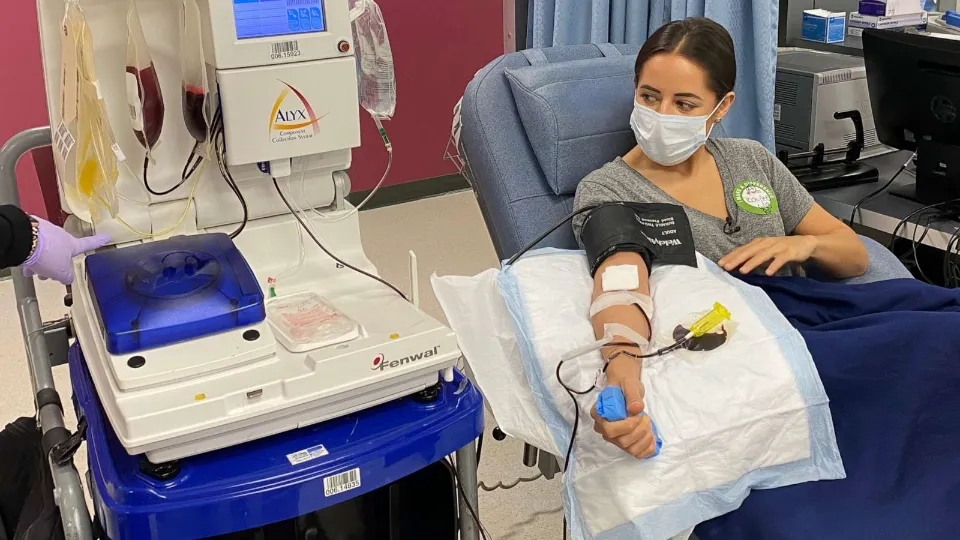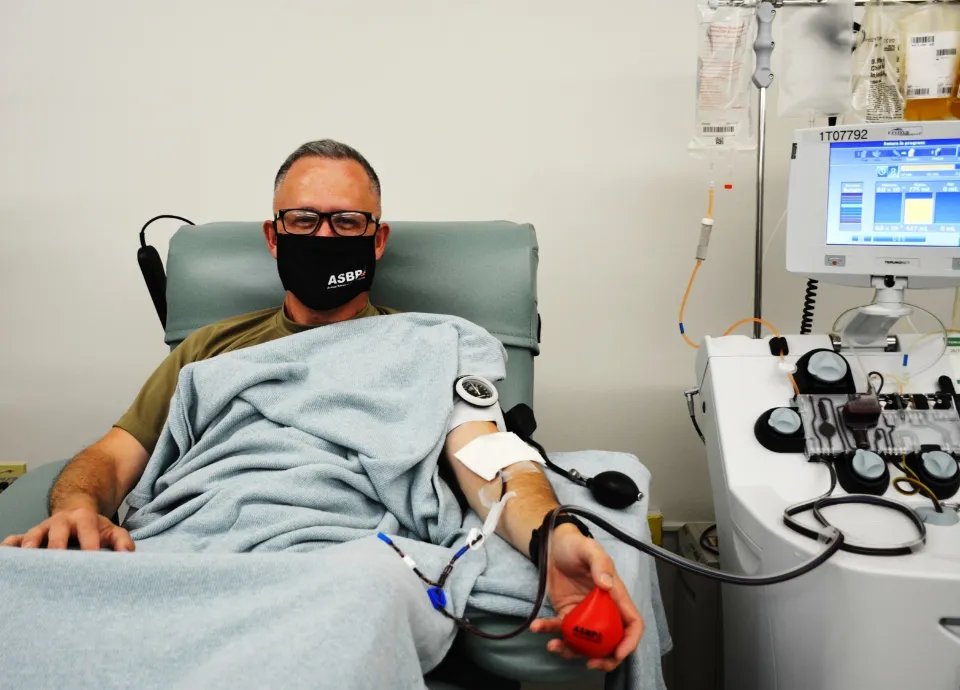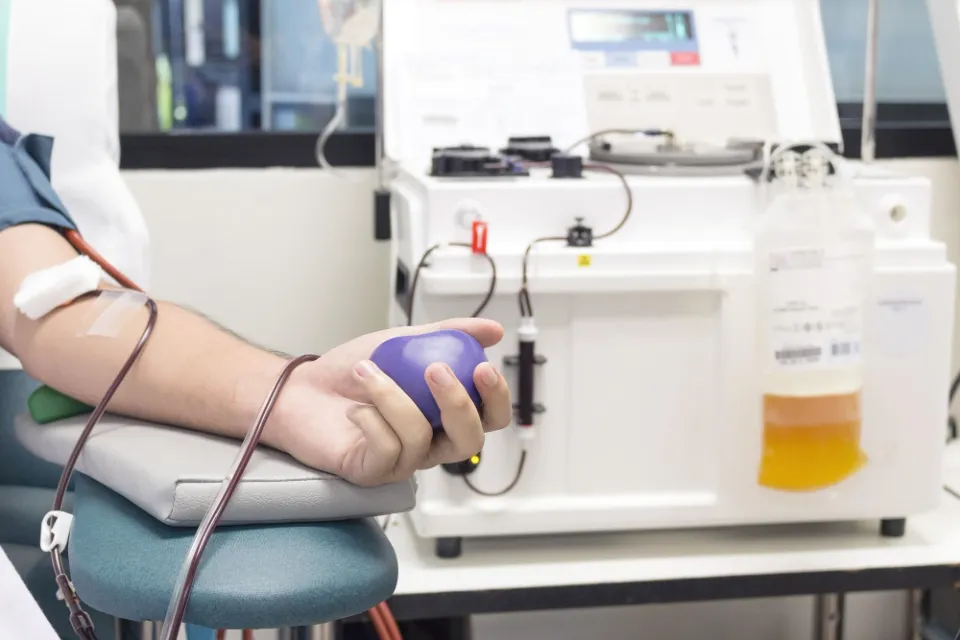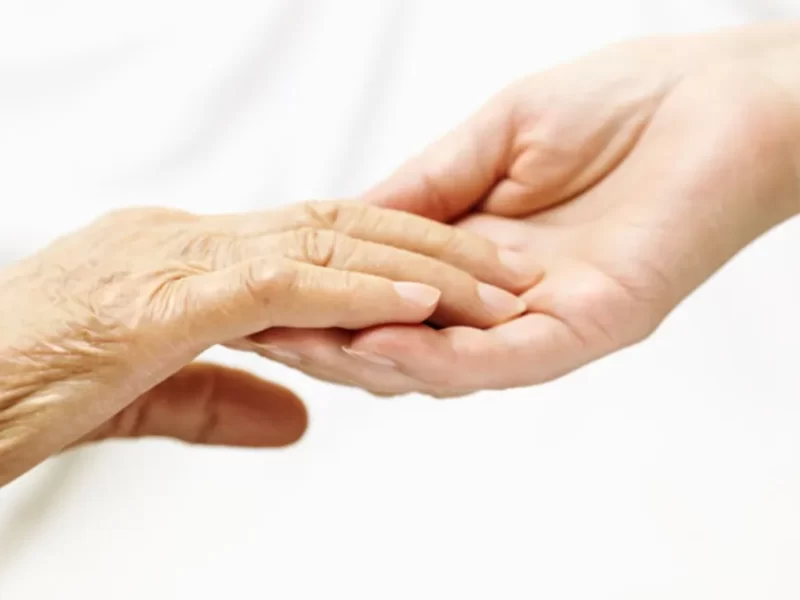Plasma donation is a significant, selfless act that can save lives. Your plasma, like donated blood, is used in trauma situations in hospitals to assist the injured. Plasma aids in the halting of bleeding in emergencies.
How old to donate plasma? Is donating plasma safe? Here is what you should know if you’re considering giving plasma.
Read more: What to Donate to Elderly: a Satisfactory Items List – Elder VIP
Is Donating Plasma Safe?
Plasma donations are comparable to blood donations. Donating plasma is completely safe as long as you do it in a licensed facility.
The first step you should take if you’re thinking about donating plasma is to find a facility that has received certification from the International Quality Plasma Program (IQPP).
These facilities are clean, and the staff is made up of experts in their fields. All of the tools used to collect plasma are sterilized and cleaned after each use.
In order to maintain cleanliness and prevent the spread of any bloodborne pathogens, any equipment that comes into contact with you as a donor is only used once.
Plasma donation shouldn’t cause any harm. The experience of giving plasma should be the same as giving blood normally. The staff will make every effort to keep you comfortable throughout the donation process after the needle is inserted, though you might experience a brief stinging sensation.

How Old to Donate Plasma?
Age
Must be 18-70
Weight
Minimum 110 lb
Residency
- Social Security Number
- Proof of local address
Medical Examination
- During the first visit only
- Annually thereafter
Virus Ineligibility
- Hepatitis (negative)
- HIV (negative)
- Parvo B19 (negative)
Diet and Hydration Recommendations
- High protein and iron-rich foods
- Plenty of water
Tattoos & Piercings
- 4-month deferral
Pregnant
- 6-12 months after the pregnancy ends
- Check with your doctor prior to donating
Frequency
- U.S Food and Drug Administration (FDA) guidelines
- 2 donations within a 7-day period, with at least 2 days between donations
Requirements to Donate Plasma
If you’re a first-time donor, you’ll need:
- Current, valid photo ID (must be 18 years old)
- Proof of your Social Security number
- Proof of current address (such as a piece of mail postmarked in the past 30 days, or a current lease)
- Active military is to provide the address where they receive mail & their physical address
Restrictions
Please note, the following are not permitted in our donation centers:
- Phone calls
- Photography
- Sleeping
- Weapons
- Food/Drink
How Do I Donate Plasma?
If you’ve never been given plasma before, it’s normal to feel a little anxious. Here’s what to expect:
Getting started. A medical history form must be completed prior to plasma donation. You might be questioned on this form regarding certain actions that increase your risk of contracting bloodborne viruses. You will then receive a medical examination from a staff member. Your pulse, blood pressure, and body temperature will all be checked as a result.
You will receive a finger-prick test from a staff member to determine your blood’s protein and hemoglobin concentrations. Every time you donate plasma, this is done.
You should budget about 90 minutes for your plasma donation appointment in total. Registration, screening, and donation are all included in this. About 25 minutes are needed for the donation itself.

After the screening is complete, you will recline in a chair while a pressure cuff or tourniquet is applied to your arm to help locate your veins. It fills the donation bag quicker thanks to the pressure as well. The needle will then be inserted into your arm by a trained staff member using sterile, clean equipment. You can unwind, watch videos, or listen to music during this time.
After the donation procedure is complete, you should eat something and hydrate yourself. You can frequently get this at the donation center. For the remainder of the day, you should refrain from doing any demanding physical activity to give your body time to rest.
What Are Plasma Donations Used For?
The most frequently transfused plasma types, such as groups A and AB, are collected through plasma donations by apheresis.
Conclusion
Your safety and health are guaranteed by these requirements. In order to donate plasma, you must: Have a minimum age of 18. be in good general health. 50 kilograms or more, or 110 pounds or more. a successful medical examination. Tests should come back negative for blood-borne viruses like HIV and hepatitis. Examine your medical history. Some states allow teens ages 16 or older to donate with the permission of a parent
FAQs
How Do I Make An Appointment to Donate?
At the moment, Carter BloodCare locations all accept plasma donations. Make an appointment to donate by calling (817) 412-5830. The members of our staff are ready to help you.
How Much Will I Be Compensated for My Plasma?
To provide vital, life-saving blood products to nearby hospitals, we rely on the generosity of our donors.



